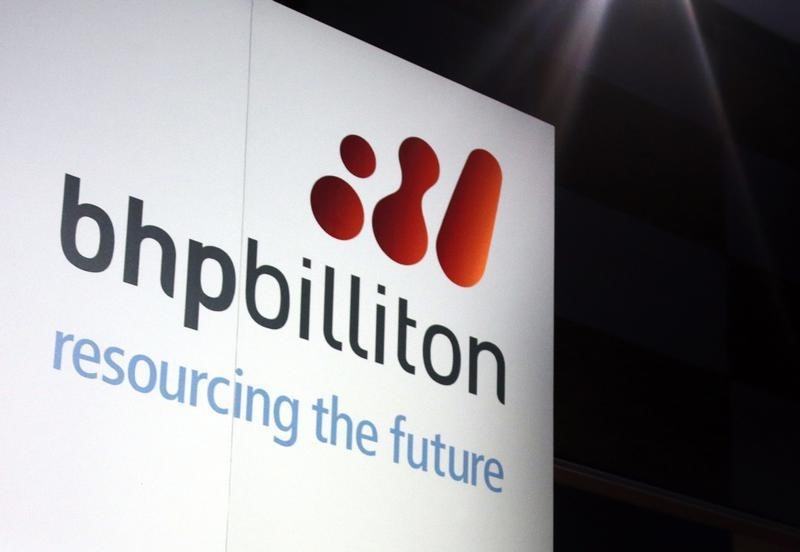By Geoffrey Smith
Investing.com --Anyone looking at BHP Group (NYSE:BHP)'s results this morning could be forgiven for thinking that the new commodities supercycle is upon us.
The Australian-based, London-listed miner is churning out cash like never before, announcing a $5.1 billion special dividend after the first half of its fiscal year, a period in which prices for iron ore have soared to their highest in over eight years on the back of seemingly limitless demand from China.
That’s actually more than the company’s net profit for the period, which was hit by $2.2 billion of asset writedowns, and reflects BHP’s commitment to pay out on the basis of underlying profit, rather than reported net income.
And there seems to be plenty more yet where that came from. In a statement accompanying the results, CEO Mike Henry nodded to “policymakers in key economies signalling a durable commitment to growth and signalling ambitions to tackle climate change.”
“These factors, combined with population growth and rising living standards, are expected to drive continuing growth in demand for energy, metals and fertilisers,” Henry said.
Glencore (OTC:GLNCY) also weighed in, restoring its dividend after saying its underlying profit for last year was in the region of $2.5 billion. By contrast with BHP, its asset impairments generated a net loss of around $1.9 billion. However, the dividend reinstatement is a reasonably clear sign of confidence about the near-term outlook.
Certainly, plenty of factors that could generate a new supercycle – a generalized boom resulting from a solid and synchronized economic upswing across the world – seem to be in place: firstly, U.S. fiscal and monetary policy are extraordinarily expansive, cheapening the dollar. That alone tends to act as rocket fuel for most commodity prices.
Second, the $1.9 trillion stimulus plan currently in the works in the U.S. may – although this is not certain – support a boom in infrastructure investment in the world’s largest economy that would broaden the geographic sources of demand for commodities.
Thirdly, there has been no truly significant expansion of capacity in many of the world’s metals markets since the last boom and bust cycle, and iron ore in particular has had its fair share of bottlenecks caused by incidents like the dam disasters in Brazil. South America’s copper mines, too, struggled to sustain output last year as Covid-19 swept through their workforces. In oil, massive cuts to upstream investment last year have prepared the conditions for a sharp tightening in the near-term supply-demand balance.
Fourthly, the transformation to a greener economy has caused a structural upward shift in demand for copper, nickel and silver, which are all needed in bigger quantities for electric cars, photovoltaic panels and the like.
This factor seems to be a more powerful one even than the weak dollar: Saxo Bank research points out that the spread between gold and platinum has moved sharply in the latter’s favor recently, something that seems largely due to its industrial applications. Platinum futures have surged some 30% since late January, easily outperforming gold, and hit their highest since 2014 on Monday.
But this fourth argument is a double-edged sword. The advance of green technology is the main reason why BHP and Glencore have been disposing or writing down the value of their oil and coal assets. As Capital Economics’ Caroline Bain argues, it certainly suggests that not all commodities will enjoy the same degree of uplift. Not only oil, but agricultural products used for biofuels face long-term headwinds as electric vehicles take market share from internal combustion ones.
In a note to clients, Bain argues that for now, the recovery looks much like the one that followed the 2008 crisis, in its reliance on Chinese stimulus spending.
“We expect that this is likely to run out of steam later this year, as stimulus is withdrawn, and that prices will fall back,” Bain said in a note to clients, pointing out that by 2015, most commodity prices were back at their 2009 lows.
